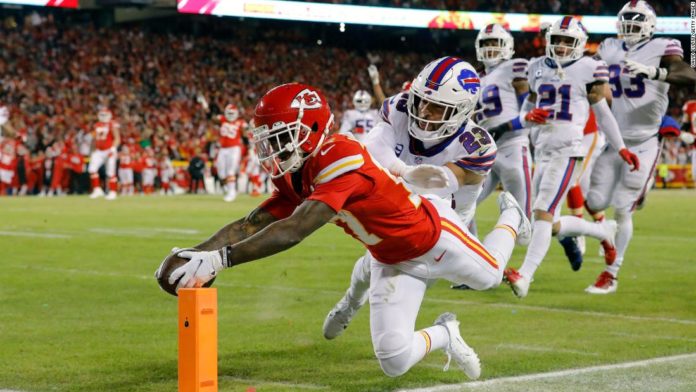The Bills have never won a Super Bowl and will need to wait at least one more year before they do. Every time the Bills fall short, I am filled with a feeling that can only be described as expected despair. As the saying goes: it’s the hope that kills you.
A question I’m often asked is why do I root for this underdog, as if it is some unexplainable mistake. It turns out, however, that there are many people just like me, and there are good reasons folks keep rooting for teams that break their hearts over and over again.
There have been lots of studies about people like me who root for the underdogs, and a couple of theories have been formed about why we do what we do.
For example, we root for the underdog because we relate to them. I was someone who didn’t speak until late and struggled learning well into high school. Relative to my classmates, I saw myself as a bit of an underdog — a team like the Bills fits me well.
Bills fandom is about loyalty, win or lose.
The science of the underdog
Keep in mind, the Bills only got in because the Baltimore Ravens lost against the Cincinnati Bengals; the Bills won a tiebreaker and were able to sneak in through a backdoor.
The Bills getting into the playoffs didn’t get them anywhere close to a Super Bowl though, as they lost in the opening round of the playoffs.
While rooting for the Bills is not something many Americans do, the yearning to root for an underdog is widespread.
You can see this in the actual polling. Take a look at what happened to the Denver Broncos in Super Bowl XXXII compared to XXXIII, for example.
The next year, the Broncos were heavy favorites over the Atlanta Falcons, a team which outside of Georgia doesn’t have many fans. Even so, people who had a preference were 11 points more likely to want the Falcons to win.
Schadenfreude
But perhaps the least romantic reason for liking the underdog isn’t about the underdog itself — it’s about the favorite.
In other words, there is a lot of schadenfreude (pleasure derived from the misfortune of another) going on: we want the losers to win because we enjoy the pain of the winner losing.
My schadenfreude doesn’t apply to the Bills, but it definitely applies to my Yankees hatred. I make sure to call a Yankee friend of mine at the end of every season they lose and make him suffer.
One of the biggest mistakes we make is conflating the large fan bases of frontrunners with the fact that most people root for the frontrunners.
Yet only about 20% of Americans had the Cowboys as one of their favorite teams, while over 30% of fans had the Dallas team as one of their least favorite teams.
A 2010 Gallup poll showed the same thing when it came to baseball. A year after they won the World Series, a league high 16% of baseball fans said the Yankees were a team they loved to root for. Nearly twice as many (31%) though said the Yankees were a team they loved to hate.
The Yankees are almost the complete opposite of the Bills. They’re from the most populated city in the United States and have won more championships than any other American professional franchise.
The Yankees do, however, provide a great example of how quickly the tide can turn. The team won 26 World Series in the 20th century, but they have won just one in the 21st century.
Maybe the Bills, who haven’t pulled it off in the first 56 Super Bowls, will do better over the next 56?
All we need is one, and there will be great, great joy.
Source : Nbcnewyork














